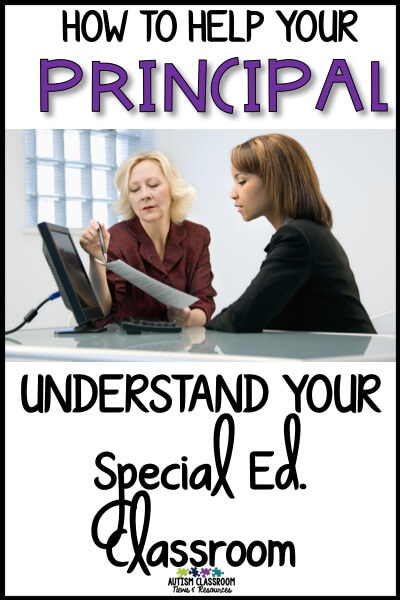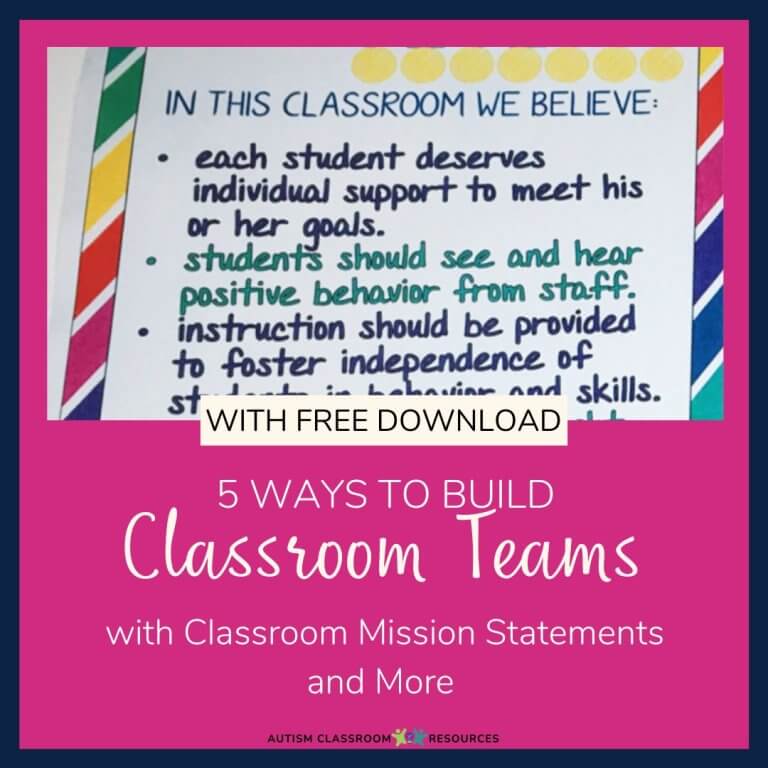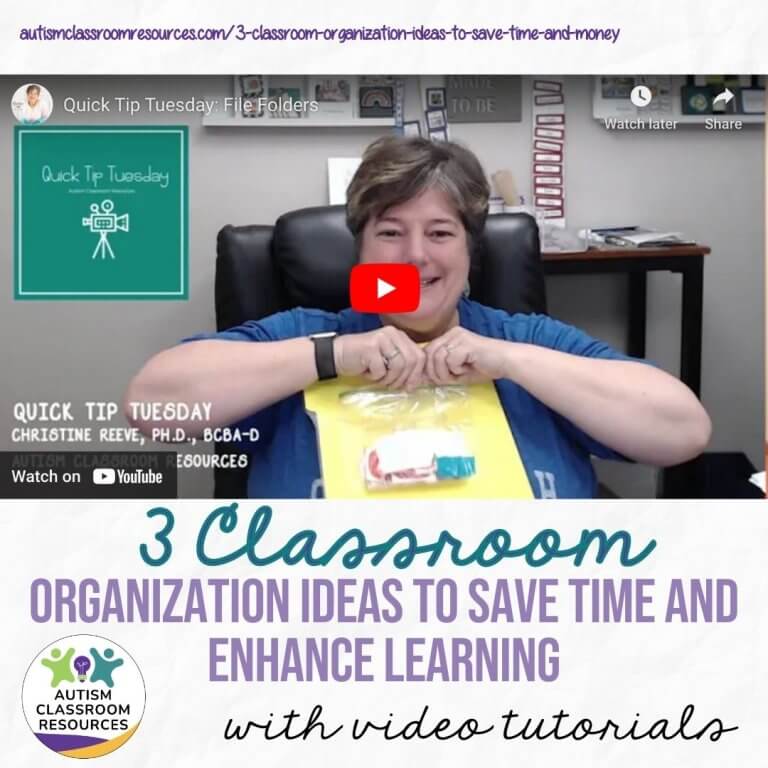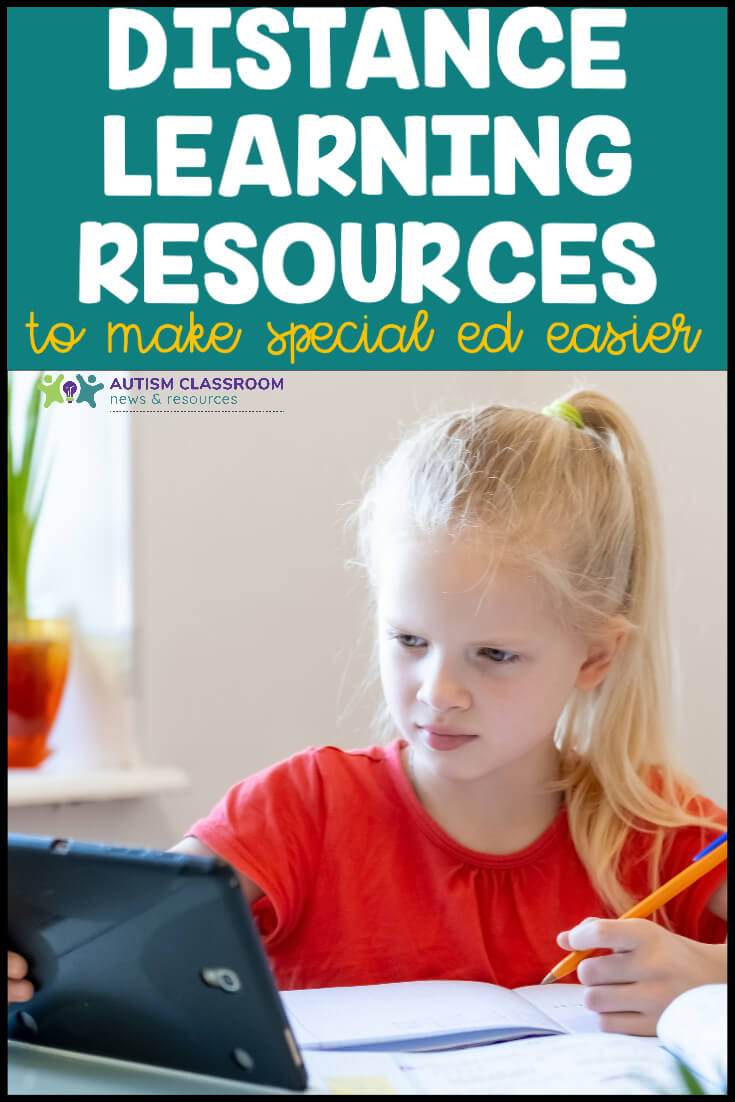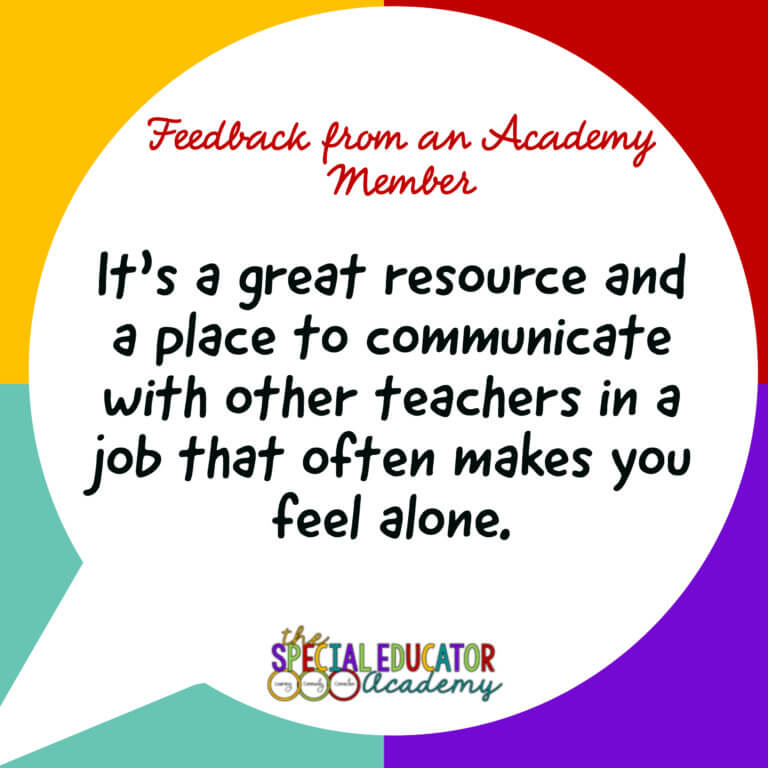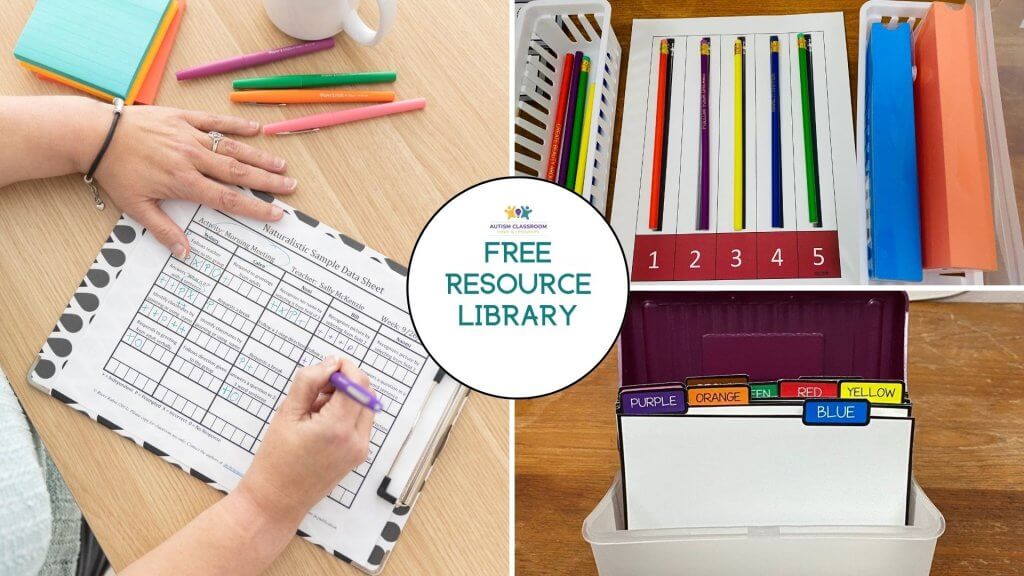It’s time for your Teacher Evaluation…have I scared you yet? Do you dread your teacher evaluation? Do you feel like your principal really doesn’t understand what you do?
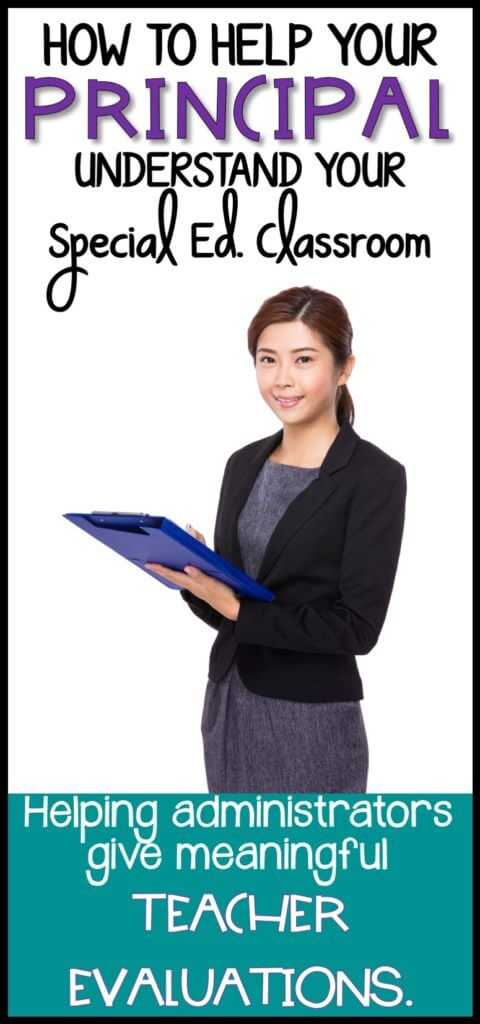 I have met some principals who tell their special education teachers that the evaluation is meaningless and not to worry about it. This supposedly relieves you of the burden…but not really. It’s still your evaluation and you still have a right to have meaningful feedback on the implementation of your job.
I have met some principals who tell their special education teachers that the evaluation is meaningless and not to worry about it. This supposedly relieves you of the burden…but not really. It’s still your evaluation and you still have a right to have meaningful feedback on the implementation of your job.
I have also met principals who just stick to the letter of the general education evaluations. They say they don’t know anything about special education so they just stick to what they know. Obviously this is problematic because our classrooms are not like those classrooms. And the evaluations just don’t fit.
And I have met some principals who come from special education backgrounds or have learned over time about what is expected (or who to ask to find out) in our classrooms. If that is your principal, consider yourself lucky. They are few and far between, because there is so much that a principal has to know about.
Recently I had a Facebook follower ask me about ideas for how to approach teacher evaluations in a special education environment…particularly if your principal doesn’t really understand your class. This is a huge issue that affects all special educators nationally, obviously. And it’s becoming a bigger issue because many states are wanting to link pay to evaluations. We can debate the merit of this till the end of the day, but it’s a fact of life for many of you.
Why Are Evaluations a Problem?
There are so many reasons why teacher evaluations in special education classroom can be problematic. Many of those are political and I’m happy to talk about them over a cocktail at a conference sometime. For the purposes of this post, though, I’m going to focus on a couple of issues.
- When administrators don’t understand your classroom, they can’t give you feedback that is constructive for your growth which can also help your students.
- Your building administrators, typically the ones doing evaluations, have the opportunity to interact with you in many different environments from IEPs to staff meetings to grade level and faculty meetings. They are your boss in most systems and need to be able to evaluate your performance effectively to determine who to hire and how to utilize resources.
- Building administrators also typically see you more often than district-wide special education administrators who might be more knowledgeable about your classroom.
- Your professional performance is linked to your evaluations by your building administrators, in most districts. In some cases your pay may be linked to them as well. Obviously if the administrator doesn’t know how your classroom works and why, he/she can’t evaluate you effectively.
- Principals are often told to use the same measures for evaluations as the grade level evaluations they use in general education. They may not be able to bypass this requirement of the district. However, with more knowledge and understanding, they might be able to enhance and interpret those evaluations to better meet the needs of your classroom.
[socialpug_tweet tweet=”We can’t expect administrators to be special education experts. But …. #autism #sped ” display_tweet=”We can’t expect administrators to be special education experts. But if we expect them to hire and supervise staff in those settings, some understanding will only enhance their ability to run schools smoothly.”]
So What’s a Teacher to Do?
There are some things you can do to help make this process less painful and more productive. You know me…we are going to spend time doing something, I want it to be functional. That applies to the students and the staff. These strategies won’t work for every situation and every principal. However, they are a good approach to show leadership on your part and to advocate for yourself at the same time.
Be Proactive
It’s always best to get out in front of a potential situation and be proactive. In this case, that means scheduling a time to meet with your principal. Choose a time, if possible, when it’s not the middle of evaluation “season” and before evaluations have gotten underway. If that’s not possible, start now. Most good leaders should be interested in teachers who want to improve their teaching and seek out resources to do so. Think about the following topics or starter questions for the discussion.
- Tell the principal that you are interested in the evaluation process and want to assure you are meeting his or her standards as a teacher in the school.
- Share a little of your background, if they aren’t the one who hired you, and let them know some areas you would like some help with or feedback on. This shows that you are ready and eager to learn and grow. Again, this sets the tone for the meeting and makes the evaluation process more meaningful.
- If you aren’t familiar with the evaluation process in the district ask about that and how it is applied in the school to special education teachers.
- Ask what the principal’s perspective is on a well-run classroom and how that applies to a class like yours.
- Share with the principal the philosophy of your classroom–What methodologies do you use? (e.g., TEACCH, ABA, combination). What are your ultimate outcome goals for your students (e.g., independence)? How is your schedule set up? Do you use evidence-based practice? How does that look in your classroom? Share this information to help him or her understand the differences and the similarities to other classrooms in the building.
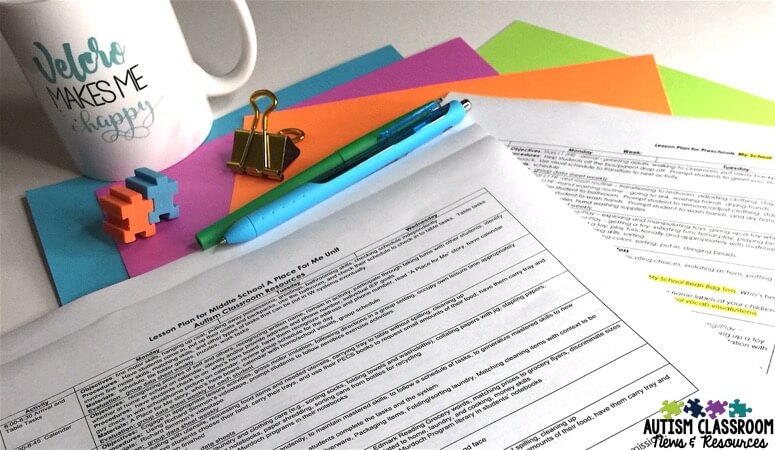
Hopefully this type of talk will serve to open the discussion and share initial information that might help the principal understand your room. It also opens the dialogue encouraging questions about your classroom, in place of judgments.
Give a Tour
If you have the opportunity think about giving the principal a tour of your classroom. He or she might have been in your classroom but not known what they were looking at or for. Offer to take them through your room, when the students are not there, and show them why it is set up the way it is. And be prepared to do it and to answer questions. Make sure you have thought about the areas of you room.
If the principal can’t come for a tour, offer to make a quick video tour outlining the areas of your room and why they are established that way. Make sure to include your data notebooks and instructional areas in addition to how the class is set up.
Share Information From the Special Ed Field
In addition to sharing the information in discussion, look for possible rubrics that have been developed to evaluate programs like yours. Below are some links that might be helpful.
Program Indicators
These are links to documents that are good for evaluating whole district programs on autism. But you can also be adapt them to the classroom. They are also great tools for autism coaches and special education leaderships. In addition, they aren’t always autism-specific and therefore are highly useful in evaluating classrooms with students without autism.
- The NY Autism Program Quality Indicators have probably been around the longest and serve as a great way to self-evaluate whole district programs. You can pick pieces of it as well to be used for the classroom.
- New Jersey has developed a document that describes what quality programming for autism should include. It is also called the Autism Program Quality Indicators.
- Colorado also has an Autism Program Quality Indicators that can be used as a self-assessment.
Classroom Indicators
These links are designed to evaluate or self-assess individual classroom programs. Some are autism-specific and some are just related to special education. You’ll see a great deal of overlap between them. These are also great tools for coaches and special education administrators, as well as principals.
- Arizona has a great Essential Classroom Practices for Students with ASD that looks specifically at classroom elements like visual supports and data collection. This would be great to share with the principal to know what to look for.
- The Florida Centers for Autism and Related Disabilities (CARD) developed a Classroom Observation Instrument that is very strong and easy to use. You can find another observation tool for general education classrooms here along with tutorials on how to use both.
- If you use the TEACCH model, CARD also developed an assessment for evaluating TEACCH programs as part of an ongoing research project.
- The Autism Specialists Network of Virginia has also created a classroom assessment. Although it’s not quite as detailed as some of the others, it also may be more palatable to a busy administrator.
Materials Specifically for Administrators
- CARD also has an excellent administrators’ guide. It includes a great page you could print out of 9 things administrators should know. It also includes a video for administrators on appropriate practices for students with ASD in general and special education.
- New Jersey has developed an administrative guide as well to help principals understand the needs of their students with autism.
In my next post I’ll talk about what do during your evaluation to help the principal understand your classroom and teaching style. Until then I hope you’ll join our Facebook Live Q/A session to talk more about this topic. Check Facebook for an announcement.
Looking for ideas to help organize your classroom and get it evaluation ready? Check out my 2 segments of the Special Education Classroom Setup Toolkit.
The Special Education Classroom Startup Toolkit: Teaching Plans and Schedule
A Toolkit to Help You Build Classroom Teams and Schedule Staff
Until next time,


